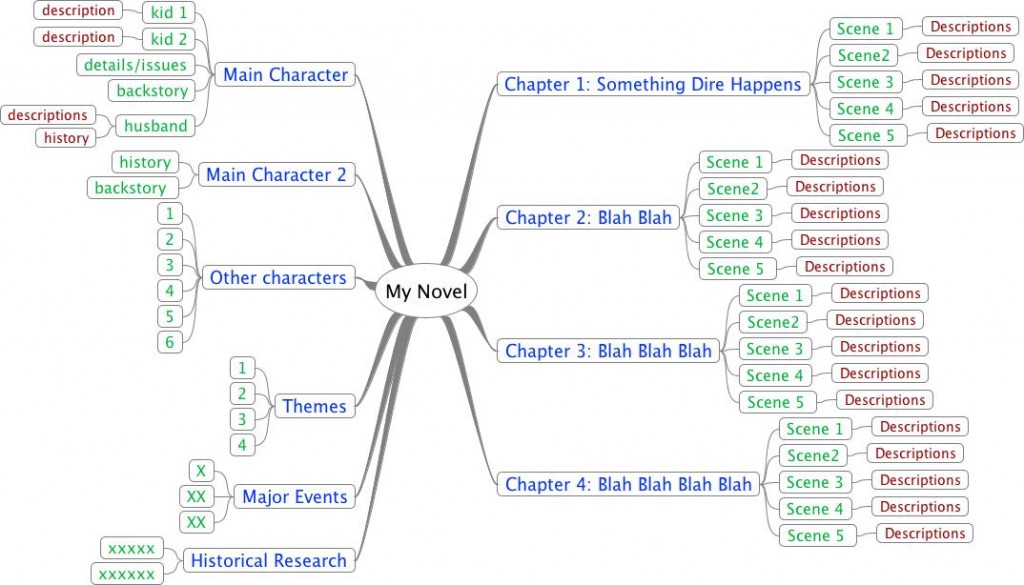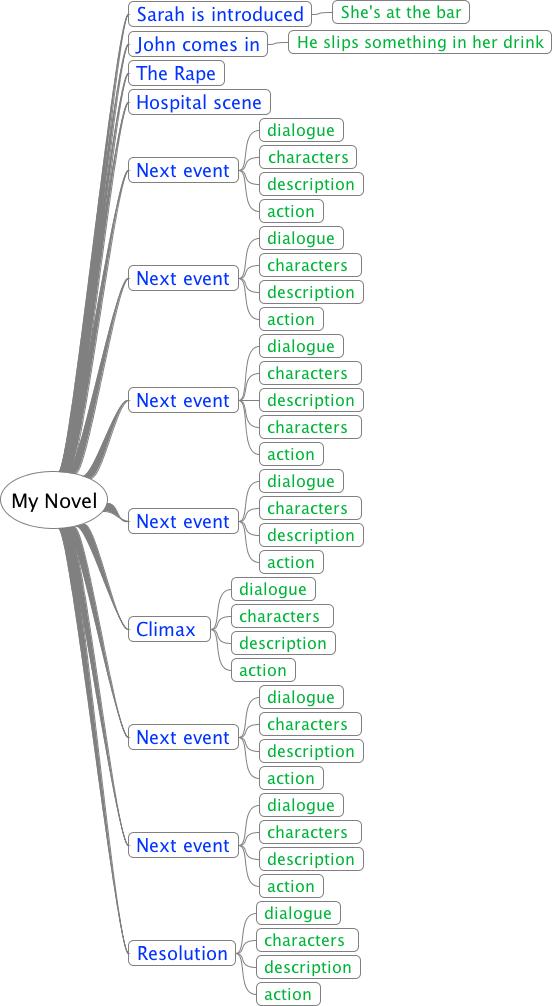 Blogging fiction isn’t as easy as blogging nonfiction. The process poses some inherent challenges, but they are just that—challenges. They aren’t obstacles. Therefore, if you want to blog a novel, you should go ahead and do so.
Blogging fiction isn’t as easy as blogging nonfiction. The process poses some inherent challenges, but they are just that—challenges. They aren’t obstacles. Therefore, if you want to blog a novel, you should go ahead and do so.
How to Begin Blogging a Novel
As with any other book you write, you should begin blogging your novel by creating a business plan. A book proposal provides the best business plan you can find for a book, and as you fill that plan with information, you evaluate the marketability of your idea. This is key—especially for novelists. (For help with this aspect of the process, read The Author Training Manual.)
Almost every fiction category is flooded with titles. Thus, you want to ensure that you provide a story that is unique and necessary, not just the same old same old tale that has been told over and over again. No one wants to hear that—not readers and not agents or acquisitions editors.
By going through the proposal process, which is what I now call the Author Training Process in The Author Training Manual, you increase the likelihood of producing a book that will sell. I’ve written about this extensively here on this blog, and The Author Training Manual takes you through ever step necessary to create a business plan for your indie book or a book proposal for a traditionally published book.
Map Out Your Story
Once you have your plan finished, it’s time to map out the contents of your book. I suggest novelist become planners rather than “seatsers.” Writing by the seat of your pants is actually more difficult even if it feels more creative. The novelists I know who do extensive planning (Jonathan Maberry and Susanne Lakin, for example) write their books in 4-6 weeks. Most have their own methodology, but here’s a my suggestion: Use a mind map.
You can use a mind map, or several of them, to flesh out just about every aspect of your novel. If need be, you can put some of this information on a time line, but I think you will find a mind map serves this purpose quite well. Here’s how a mind map for a novel might look.
You could create a separate mind map for each chapter, each character, each major event, etc. You could have a mind map that looks more like a chronology of events. It might look like this:
Now, I’m not a novelist (I have just one draft under my belt), so forgive me if I’ve left anything off or used incorrect terminology! But I think you get the idea. And you can see that this provides an effective way to see if your story arc has issues.
Write Your Synopsis
When done with your mind maps, you’ve fleshed out all the details of your story. You can then write chapter-by-chapter synopsis and a total synopsis for the book. These will serve you well as you write your book. All these pieces together become a superb writing guide. You can refer to them at any point in the writing process.
You’ve combined a very creative process with a business process to produce a highly marketable book. Now go write that novel in post-sized bits.
Break It Down Into Posts
Now, break your chapters down into 300 to 1,000-word pieces. Normally, I recommend 300 to 500-word pieces, but a scene might take you longer to write, and that’s what you’ll be posting. You’ll break your chapters into scenes, bits of dialogue, description, etc. So look at each chapter and determine how you can logically split it up.
Then your job becomes writing each of those pieces in a way that has a compelling beginning and end. You want to draw readers along from post to post. Remember: You aren’t serializing your book. You are blogging it. You aren’t going to post full chapters.
This is where your writing will improve, other writers claim. It’s this effort to keep the story arc flowing from post to post that takes real work!
What to Leave Out?
The hardest part for novelists comes in determining what content to leave off the blog. And sometimes there is no solution. For nonfiction writers, this is easy. They simply hold back a chapter or two. That doesn’t work so well for novelists.
You might, however, be able to leave out some chapters that primarily tell the story of secondary characters. Or if you are telling the story from two view points, only include one character’s viewpoint. Think of Diana Gabaldon’s Outlander series. This is told from different viewpoints. Also, she created a totally separate series around the John Grey character. However, much of that information could have been in the original series, I suppose. Or maybe you could leave out some scenes that aren’t so important…or that are and hold some secrets that only get discovered in the printed or digital version.
If you can’t leave anything out, rest assured that your finished manuscript will differ from the first draft that appears on your blog. Why? It will have been edited. Your revisions will surely yield many changes, and that’s good reason for an avid blog reader to purchase it when it’s released.
For more tips on blogging a novel, read this previous post.
Photo courtesy of lunamarina | stockfresh.com



The first I heard of you was yesterday at B&N and you book caught my eye. Book Blogging has been an interesting prospect I’ve been thinking about lately. I write Fiction but and not very experienced at it. I’m not ready for a book deal yet, so my intentions are just to find people whole like my writing and build a readership so that when I’m ready to submit to an agent, I have both leverage and experience.
I think it would be great if you had series of posts focused on novelists. So far, my game plan looks like this:
1. Finish at least one whole book first. Give yourself the luxury of a rewrite. This is very valuable if you’re a pantser.
2. Create a self-published book that someone can buy in its completed form. It can be annoying to wait to read the next scene or chapter. A call to action at the end of each post will give the reader the opportunity to just buy the book and finish it. The conversion rate may not be high, but its an chance at a sale for someone who just can’t wait.
3. Build a tab for easy browsing. The biggest downside of a story in blog for is that blogs post in reverse order. Make it easy by making a tab for a table of contents so that a reader who finds by our site halfway through can easily start at the beginning.
My two cents. I hope to have my site up after NaNo ( which I had no idea you were the founder of!)
Sounds like you have a plan. I didn’t found NaNoWriMo. I founded NaNonFiWriMo, the nonfiction version. I have written about blogging fiction to some extent, but I’m not an expert in fiction writing. I wish you much luck, and thanks for commenting.
I found this lady by accident and am thanking my lucky stars. Down on my luck since my husband committed suicide 2 years ago leaving me with invalid Life Assurances (who don’t pay out on suicides) a whole lot of debt, a disability, and a child to raise.
It helps I have always written, mostly for pocket money as a Freelance Writer, but now I am utterly determined to write a breakout novel.
And when I do, the first person I will thank is Nina Amir.
She is a real person, with a real heart and soul, not some robot who could not care less whether her advice is accurate or not.
Any which way you look at it, she is brilliant. AND she is a published author. I am in awe of such a superwoman lady.
I have bought two of her books, she has already answered about five of my emails (on a Public Holiday no less) and in my book is A Number One, King of the Hill, Top of the Tree (with apologies to Frank Sinatra).
Seriously, if you are looking to write seriously, look no more. This lady is honest, kind, trustworthy and a gem. What more could you want? In a web of tricksters only out to rob you of money, this lady is a superstar.
I thank you, Nina from the bottom of my heart. You have restored my faith in authors.
Sincerely and always
Anne,
What a sweet and glowing commnent and testimonial. I am so sorry for your loss and trouble. I hope you find the help you need on my sites so you can create a career as an author.
I’ve been thinking of starting my own fiction novel that is to say its really hard to create a vivid background for each of the characters and not to mention there is world-building. Portraying the essence of the story which brings and tie the readers to your novel probably the hardest part. But anyway ‘Patience’ is essential skill for any novelist so i’ll try to hang in there. Thanks for your in-dept content, love it.
hi have nice day
I am not good at English, but I saw it for the first time.
If I become proficient in English, I will have more conversation.
It’s too bad.
Have a good time.
This is such a practical and encouraging breakdown for novelists turning massive manuscripts into manageable, post-sized pieces feels so doable now. I love how the advice smartly blends creativity with structure: plan using mind maps, write a book proposal, break chapters into bite-sized scenes. It’s like building a novel post by post, with intention and momentum. Brilliant guidance for emerging authors!